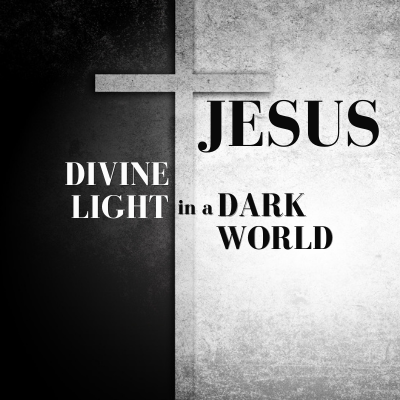TALKING POINTS / WALKING POINTS
Dig deeper into the message during the sermon, in your personal Bible study, or with your family or Community Group in application-driven discussion.
COMMUNITY GROUP LEADER’S GUIDE
SERMON SUMMARY
Today’s text records two incidents regarding the Sabbath. Modeled after the creation week, Jews were to work on six days and rest and worship on the seventh. We’ll explore three factors: [1] Why did Jesus get angry?, [2] What does the alliance of Jesus’ enemies (Herodians and Pharisees) tell us?, and [3] What does Jesus’ amazing claim that he is ‘Lord of the Sabbath’ mean?”
[1] Jesus’ anger (3:5). The Greek word for anger used here is very intense; Jesus is not merely mildly irritated! Jesus also was grieved; another intense word. So we have epic anger combined with incredible grief at their hard, hostile, blind hearts. The purpose of the Sabbath was to provide a day of rest, replenishment, and restoration. In an attempt to make sure that no one violated the Sabbath, the Pharisees created onerous non-biblical rules—rules that were thwarting the very purpose for which the Sabbath was established! God’s Law is a gift, but the Pharisees had made it into a burden. That is why Jesus was so angry. Jesus was furious towards those who held this mistaken notion that God’s law is there to crush and restrain us. This notion can be traced all the way back to Eden. When God placed the human race in Paradise he gave them only one law. Just one. Basically, God was saying, “I want you to obey me simply because you trust that I am loving and good and infinitely wise.” But Satan said: “The law of God is a burden, not a gift. It will squelch the deep desires of your heart.” I’m convinced that every single one of us is affected by the Serpent’s lie, seeing moral constraints as a burden, rather than as a gift, as death-producing rather than life-enriching. That heart attitude prompted Jesus’ epic fury.
[2] Jesus’ enemies (3:6). The Pharisees and the Herodians teamed up against Jesus, and this was an extraordinary development. The Roman Empire ruled Israel and sought to impose its pagan ideas and codes of conduct on them. The Pharisees responded to this imposed pagan immorality by doubling down on their religious rules. They added tons of footnotes to every Biblical law clarifying what was, and was not, acceptable. It was essentially a conservative overreaction to what was perceived as a creeping immorality. The Herodians, on the other hand, supported the secular Roman powers, represented by the Herodian dynasty. So church, understand this: the Pharisees and the Herodians were sworn enemies! Jesus told both groups that they were in grave error, and so a common hatred of Jesus brought these two opposing groups into alliance against him. Both groups shared attitudes toward God’s law which had been warped by Satan’s lie—that God’s law is a burden, not a blessing. The irreligious may say, “God’s rules are burdensome—I’ll live anyway I want.” The moderately religious pick and choose, obeying some commands, while rejecting/reinterpreting others. But how about religious people —like us? How have we been impacted by Satan’s lie? I think that we sometimes keep the law of God in order to pry blessings out of what we perceive to be his tightly closed hands. “I do that for you, God—you do this for me.” What can liberate us from these attitudes?
[3] Jesus’ claim (2:28). Right after Jesus said that the Sabbath is a blessing, not a burden, he made a remarkable claim: “The Son of Man is Lord even of the Sabbath” (v. 28). Jesus didn’t repeal the Sabbath, he claimed to be the divine interpreter of its purpose. Jesus use an example from King David’s life (v. 25-26; cf. 1 Samuel 21:1-6 and Leviticus 24:5-9). Just as David’s life was preserved by eating bread which legally was off-limits to him, how much more should the regulations regarding what is holy on the Sabbath be set aside for Jesus and his companions when seeking to do what is good? But I think something even more profound is at work: the Sabbath is all about rest—physical rest and spiritual rest—and Jesus promises that he gives us rest (Matthew 11:28–29). Jesus himself is our Sabbath rest (Hebrews 4:9–10)! Jesus provides rest for us. When we realize that, it exposes the serpent’s lie. We begin to realize, “Surely I can trust someone who loves me the way Jesus does. Jesus is Lord of the Sabbath, he has provided the rest that I so desperately need.” Church, that is the gospel!
APPLICATION / CHALLENGE
Jesus is “Lord of the Sabbath”, so make sure you…
- Don’t miss out on the rest, replenishment, and restoration found only in him.
- Don’t make him your enemy by turning his Law into a burden rather than a blessing.
- Don’t anger him by replacing his Lordship with your own man-made rules (Mark 7:9–13).
TAKE ONE STEP
Each week, write down one doable concrete step of obedience, small or large, that you will put into practice this week. (James 1:22: “But prove yourselves doers of the word, and not merely hearers who delude themselves.”)


